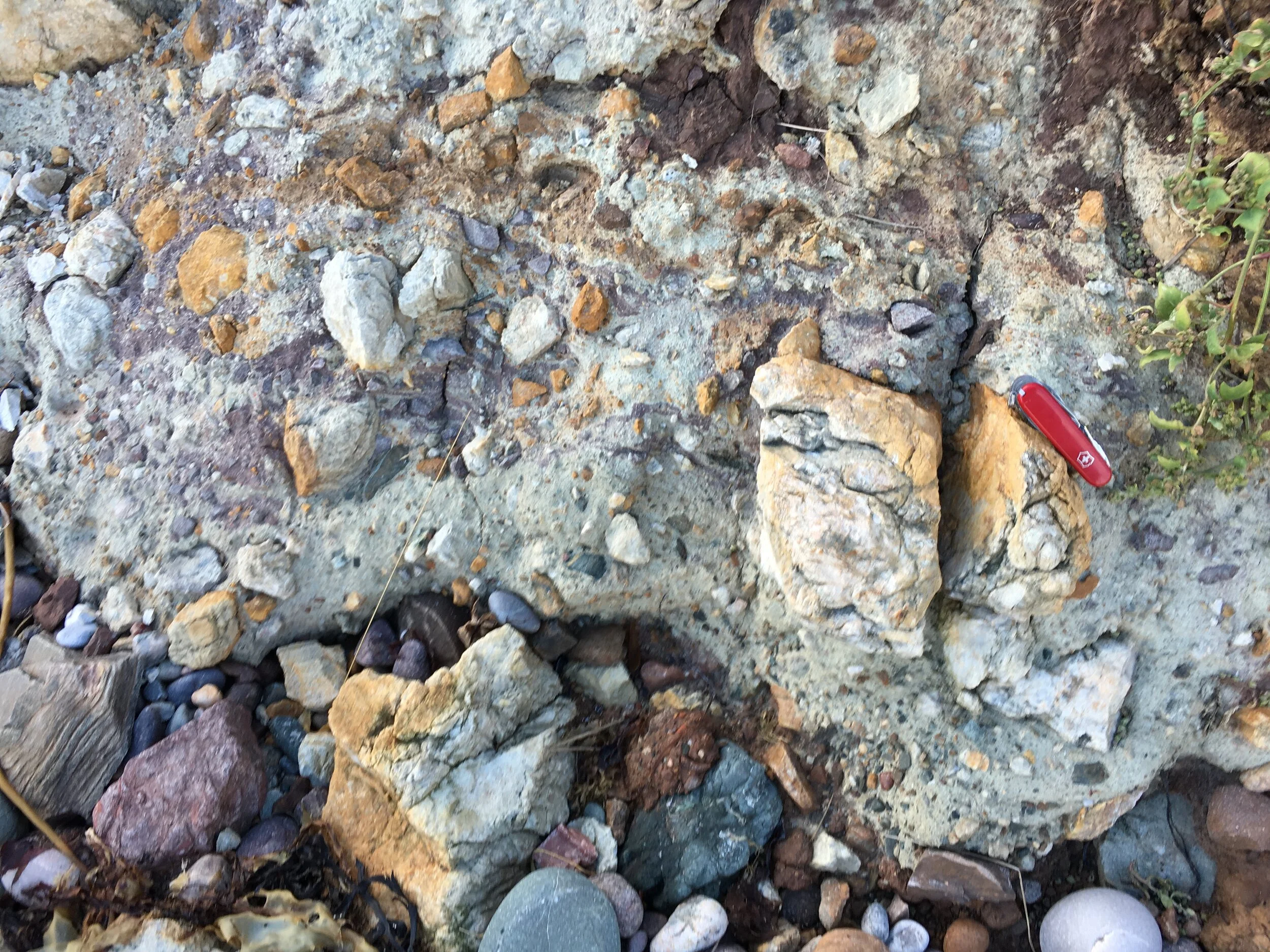The discovery of the Upper Jurassic sandstones of the Brae Field in the Viking graben, (North Sea), validated a play type in the North Sea of coarse clastic sands against on downthrown sides of normal faults (Fig 1). Boulder beds of Jurassic age can be seen at Helmsdale, Scotland (Fig 2). Boulders of Devonian age sandstone are mixed in a matrix of smaller clasts. Movements on the faults have initiated earthquakes and tsunamis - these shake the sediments, creating mudflows which flow downslope - the resulting rocks are an assemblage of different clast sizes.
Figure 1. The Brae Field, North Sea - upper, location map, lower, cross-section. (From Hardman & Booth, 1991).
Figure 2. Hammer rests on Devonian age sandstone boulder which has been incorporated into a chaotic mudflow.
There is a smaller deposit of conglomerate related to the Highland Boundary Fault (HBF) on the E coast of Scotland at Stonehaven (Fig 3). I think that the orange coloured boulders is serpentinite that has been carbonated. Note the intensive fracturing of the boulder (next to knife scale).
Figure 3. Fault-related conglomerate in the damage zone of the Highland Boundary Fault Zone, near Stonehaven.
Another example of boulders that have been derived from a fault footwall in shown in Figure 4. These conglomerates contain boulders of Lewisian gneiss in the hanging wall of a fault - in the Outer Hebrides Fault Zone.
Figure 4. Permo-Triassic conglomerates; Isle of Lewis, Scotland UK.
Reference
Hardman, R.F.P. and Booth, J.E. 1991. The significance of normal faults in the exploration and production of North Sea hydrocarbons. In: Roberts, A.M., Yielding, G. and Freeman, B. (eds), The Geometry of Normal Faults, Geological Society, London, Special Publications,56, 1 – 13. https://doi.org/10.1144/GSL.SP.1991.056.01.01





